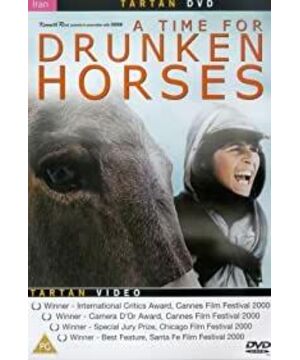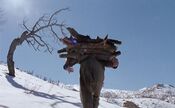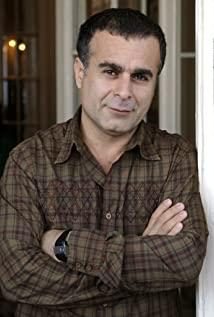A 12-year-old boy living in a poor mountainous area. His family was poor, his parents died, and he became the head of the family overnight. He had to provoke the burden of livelihood for four other siblings. His only older brother was born deformed, and his stature and intelligence are like that of a child. Now he is more seriously ill and must undergo surgery immediately, but even if he undergoes surgery, he will only be able to live another seven or eight months. In the face of this isolated and helpless situation of extreme poverty, what should he do?
Difficult, too difficult, really too difficult, I can only let go and let my brother die. This is what is in my heart. The amount of money required for the operation is considerable, and in such a family situation, no matter how hard you try, it is impossible to make up for it. Besides, it can only prolong the life of seven or eight months, and it is still a hard life that needs to be taken care of by people throughout the life. It is not worth it. Although this is very sad and helpless, but life is so cruel and realistic, sometimes bowing your head and accepting your fate is really the only choice. However, "The Drunk Horse Moment" said that I was wrong, because life is cruel and realistic, and I can't choose to bow my head and accept my fate or consider whether it is worth it.
"Hour of a Drunk Horse" is the first feature film of Iranian director Bahman Gorbad, which won the Caméra d'Or at the 2000 Cannes Film Festival and the Fabisi Award from the International Film Critics. Bahman-Gobad is a Kurd, and "The Drunk Horse" tells the story of the Kurds living on the border between Iran and Iraq, but the film deliberately avoids sensitive political issues and focuses on presenting local people living conditions and attitudes. Although the main theme of the film is sad and helpless, it conveys a strong and brave moving idea.
■"Hour of Drunken Horse" begins with the narration of a little girl, who describes her family situation outside the screen: her family lives in the mountainous area bordering Iraq in Iran, her father makes a living by smuggling goods between Iran and Iraq, and her mother is giving birth to a younger sister At that time, he passed away in childbirth. The eldest sister took care of the younger sister at home, and she took the sick eldest brother and followed the second brother across the border to do odd jobs in the Iranian market. In this way, with the childish voice-over, the film starts from the crowded and busy market scene. Countless children are mixed with adults, running back and forth, fighting for every job opportunity of packaging and handling.
The little girl who is narrating is called Amina, and her second brother is called Ayou. Their family is the protagonist of this film, but the most important character is Ayou, because he is only twelve years old. burden the family's livelihood. Their father's smuggling work was very dangerous, and he had to travel up and down mountain roads to and from the border, which were littered with mines laid during the war and often encountered bandits with guns in ambush. But there is no way. Living in the barren mountains is the only way to make a living. Every family lives like this.
It is precisely because smuggling goods on the border is a dangerous job with no other choice, so when the news of his father's death came, the family was sad, but quickly accepted the result, and Ayou also calmly accepted that he had to drop out of school to make money. The reality of raising a family. It was only when the doctor who regularly came to the mountains to see a doctor told him that his 15-year-old brother, who was still like a child, had to undergo surgery immediately, he had to feel embarrassed and worried about the money and the problems in front of him. However, Ayou was only worried. He immediately decided to inherit his father's job, smuggled goods to the border, and tried his best to make money. The family also took it for granted. Seeing a doctor when they are sick, making money when they are short of money, and never giving up family love, this is the only truth they understand.
There are no mules in Ayou's family, so he has to carry heavy goods on his shoulders and trek down the mountain road step by step. It was a snowy and cold winter, but Ayou never complained. He just went back and forth. He also bought a writing book for his sister and a pictorial of fit men for his brother, just like a father. It's just that after two months of hard work, I still can't get the amount I need. One day, when Ayou came back from work, he found that there were many people at home. It turned out that his uncle had arranged his sister's marriage without telling him. Ayou was very angry about this, and felt that her status as a parent was offended, but her sister told him calmly that the other party agreed to let her marry her eldest brother, and promised to send her eldest brother for surgery. What else can Ayou say? Although he was very angry with his uncle and himself, he still cried to send his sister and brother to marry.
When the group of them finally came to the crowd to welcome their relatives, the mother of the other party went back on it and said nothing to accept the elder brother as a dowry. After all, their family already had ten children to support. In the midst of the clamor, the other party offered to compensate with a mule as a betrothal gift. As a result, Ayou's uncle took the mule and turned away, and Ayou could only carry his brother and go home with him. After all, it is too unrealistic to say divorce at this moment.
The next day, Ayou carried his brother and dragged the mule to the smuggling caravan, asking the caravan to take him across the border, where he would sell the mule and treat his brother. The people in the caravan began to strongly disagree, because the road was very dangerous, and Ayou himself was young, and he also brought a child-like brother. If he encountered danger, he might not be able to escape and lose his life. However, the people in the caravan finally couldn't resist Ayou's repeated requests and agreed to let him join the team.
Every time it was cold, the smuggling caravan would add a bottle or two of wine to the water to help the donkey keep warm. It was especially cold that day, with wind and snow, so the caravan poured as many as four bottles of wine on the donkey, which almost caused a catastrophe. In the knee-deep snow, the caravan trudged up the mountain road, pulling the donkey and shoveling the snow. Unexpectedly, in such weather, there are still bandits in ambush. When the gunshots rang out, the caravan turned around and fled. However, the donkeys fell to the ground one by one because they were drunk, and they couldn't get up at all because they were carrying heavy loads. The caravan had to cut the ropes to lighten the donkey.
In this time of chaos, Ayou's weak body and his elder brother were unable to pull the donkey at all. He had to put down his brother while crying for help, asking others to help him pull the donkey up. But at this time, no one has the spare energy to help him, and all of them escaped without life. As the gunshots got closer, my brother sat in the snowdrift and kept shaking, while Ah You was tearfully pulling the donkey, crying that I must sell the donkey to treat my brother.
At the end of the film, Ayou carries his brother and a donkey on his back, and crosses the wire fence that divides the country together. We don't know what happened to him later, but we can be sure that there must be more obstacles and difficulties ahead, but we can also be sure that as long as there is still a breath, Ayou will never give up.
■There are no wise sayings or great truths in the whole film of "Hour of Drunk Horses". Some are just a family's hard and difficult life, as well as their persistence and courage in the face of difficulties. The Kurds have always been a complex political and ethnic issue in the Middle East, where many wars and killings have occurred. However, "Hour of Drunk Horses" does not address these issues, but only truly presents the kind and strong disposition of this group of people. This is the most touching part of this film. There is no standpoint, no point of view controversy, just real life, and the strength of not giving up, not complaining, and not praying.
The director Bachman-Gobald started his career by shooting documentaries, so the feature film "Hour of a Drunk Horse" has a documentary style. Brothers and sisters are also real family in reality. Despite this, "Hour of Drunken Horse" presents a master-level style of work. The ice and snowy mountains in the medium and long depth of field, the close-up of the characters brought out by the close-up lens, the movement of the characters under the fixed lens, and the combination of front and rear colors are the foil for the film. It solidifies a realistic and natural but peaceful and pleasant atmosphere, a rhythm that is neither humble nor arrogant, nor slow and slow.
The theme and style of "Hour of a Drunk Horse" are actually very reminiscent of Chinese director Zhang Yimou's previous rural films, especially "No One Can Be Missed", which presents the indomitable spirit of rural people in a difficult life in a simple way. Someone once said that China's rural films use China's scars to please foreigners, but I don't agree with that. Is poverty shameful? Is life so hard and shameful? Not at all, it's shameful to give up on oneself and exaggerate. Poverty but strong, hard but brave, not only there is nothing to be ashamed of, but admirable and proud.
Why do many people first consider whether it is worth the effort, whether they should work hard, or even when facing a loved one when they encounter difficulties? Maybe it's the easy life that makes us selfish and vulnerable. I think that's why we need films like "The Drunken Horse" and "No One Less" to remind ourselves that life can be cruel and realistic at times, but as long as you don't give up, you have a chance to get better. However, every time you bow your head and accept your fate, every time you give up and escape, will only make life more cruel and realistic.
■Director Bachman-Gobad not only showed the strong persistence of the Kurds with the content of "Drunken Horse Moment", but also showed the unique courage of the Kurds in the process of filming the film himself. Originally, the famous Iranian director Abbas wanted to provide Bahman with script and filming opportunities, but Bahman insisted on shooting a work that told the story of the Kurds in his own way. At the end of the filming, the funder withdrew because of the political sensitivities involved. As a result, Bachmann had to sell the property and borrow money from local residents. In the end, he took a raw film without music and sound effects to the Cannes Film Festival. The judges were amazed at the excellent level of the work and made an exception to include it in the "Director's Fortnight" section. And this "Drunken Horse Moment" finally successfully won the Golden Camera Award and the International Film Critics Fabisi Award.
View more about Zamani barayé masti asbha reviews







